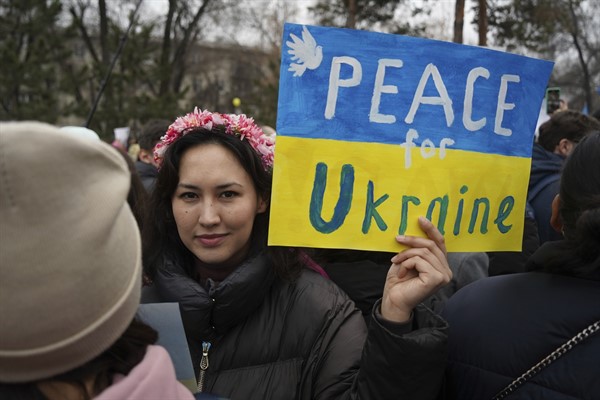Russia’s invasion of Ukraine is upending the geopolitical calculations of states around the world. The fallout is especially complex for the post-Soviet states of Central Asia, which maintain extensive economic, political, cultural and other ties to both Russia and Ukraine. While Central Asia is far from the front lines of the ongoing war, and therefore less directly impacted than states like Moldova or Georgia, its leaders also face difficult decisions.
Independent for three decades, the Central Asian states remain dependent to varying degrees on Russia as a security provider and economic partner, and as a source of political support. Their peoples and leaders, however, remain wary of Russia’s neo-imperial ambitions, which they fear will not remain confined to Ukraine. This combination of dependence and fear limits the Central Asian states’ freedom of maneuver. Central Asian elites largely oppose the war, which they worry could give Moscow a pretext to turn on them. With Russia likely facing a long period of isolation and sanctions, the Central Asian states will likely try to further reduce their economic and political dependence on Russia—without provoking a forceful response.
Despite their dependence on and vulnerability to Russia, Central Asian leaders have tried to distance themselves from the invasion of Ukraine. Central Asian leaders have either proclaimed neutrality or kept quiet about the war. All five states either abstained on or made sure to be absent for United Nations General Assembly votes to condemn the Russian invasion and demand protection for Ukrainian civilians, although Kazakhstan, Kyrgyzstan, Tajikistan and Uzbekistan voted against Russia’s expulsion from the U.N. Human Rights Council. Leaders from Kyrgyzstan, Tajikistan and Uzbekistan also pushed back against Russian claims that they had endorsed the war in calls with Russian President Vladimir Putin.

